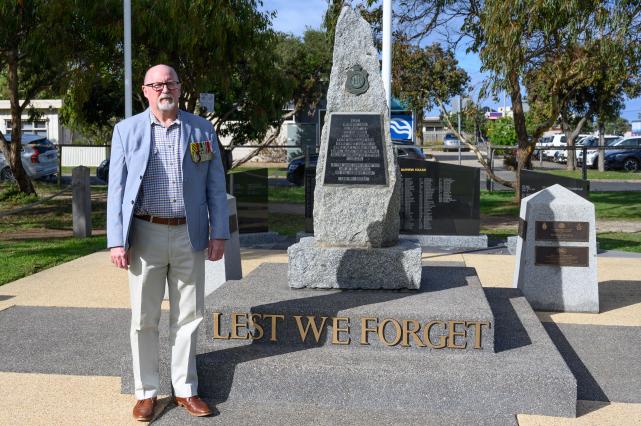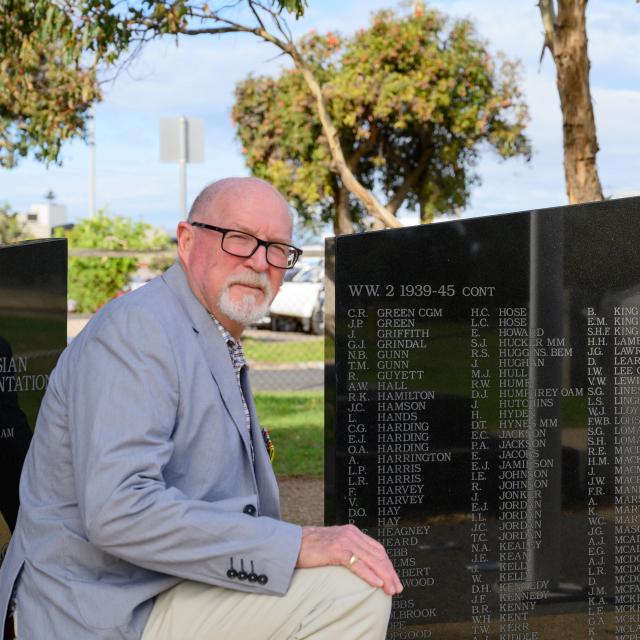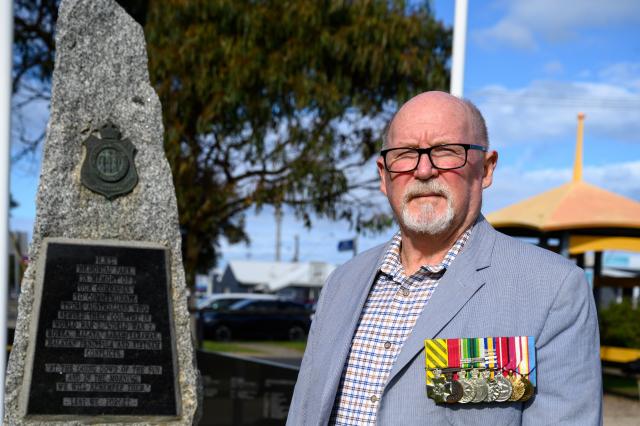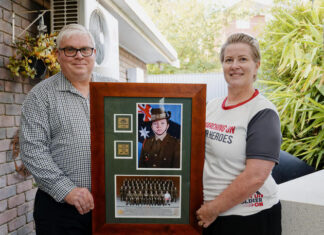The Independent is looking back at our best feature stories of last year, and this is one of them.
Anzac Day is a time to reflect and remember the sacrifices our fallen Diggers have made. Justin Flynn talks to Phil Edwards about his time in the army, including being a survivor of a fatal helicopter crash in West Papua.
Phil Edwards comes from a family with strong military ties.
His grandfather served in WWI, his father in WWII so it was only natural that he left school in Newcastle, NSW, at 16 to enlist in the Australian Army in 1972 as an apprentice electronics technician.
His father was pleased with the decision.
“I wanted to get out of Newcastle,” Phil says.
“Not for any family reasons. I was fortunate that my parents were not affluent, but working class and good people.
“In those days you either left school in Year 10 at 16 or you stayed until Year 12 and went to uni.
“If you left at Year 10, in a lot of cases you went into the industries in Newcastle as an apprentice.
“I didn’t want to do that. My dad told me that if I was going to leave in Year 10, I had to have a trade and he was a WWII veteran.
“When I said I was going to join the army apprentices school he was a happy man for two reasons.
“One I was getting a trade and two he saw military service as important.”
And leave Newcastle Phil certainly did.
A stint near Mount Martha was followed by a job fixing satellite tracking equipment for the army surveyors in Sydney.
He then was an electronics technician supporting military mapping operations in Papua New Guinea and Irian Jaya.
A few years later in 1980 Phil graduated from the Officer Cadet School near Portsea and served in various locations across Australia and overseas.
Phil spent two years with the British Army based in what was then West Germany just before the collapse of the Berlin Wall and returned to Australia in 1989 to the Command and Staff College at Fort Queenscliffe.
Later Phil served for two and half years with the US Army in Virginia before returning to Australia in 2000.
As the Director of Operations in Joint Logistics Command based in Melbourne, Phil was responsible for running the logistics operations for all the Australian Defence Force deployments worldwide including East Timor, Afghanistan and Iraq.
During 2003 he served as the senior logistics officer on the United Nations
Headquarters in East Timor before returning to Melbourne.
Phil was awarded The Bravery Medal for his actions as a survivor following the fatal crash of an Air Force helicopter in mountainous terrain in Irian Jaya in 1977.
The pilot was killed and the co-pilot, load master and other passenger were badly injured but survived.
“We were flying in the mountains up at 8000 feet, which, for helicopters, is not the best environment – hot and high is not their favourite environment,” he says.
“We hit cloud and couldn’t see where we were going. The pilot slowed down and we lost a lot of power and basically hit the trees and flipped upside down going through the trees. They didn’t find us until the next day.
“I dragged the co-pilot out because he was still alive, the others were able to get out but couldn’t move and were incapacitated.
“Put up some lightweight tentage to keep the rain off because it was rainforest and tended to their injuries, set up flares and radios ready if we heard an aircraft.”
Phil was also awarded the US Army Meritorious Service Medal in 1999 and was awarded the Conspicuous Service Cross in the Queen’s birthday honours list in 2002.
He left the army in 2007 as a Brigadier after 35 years of service and settled in Ocean Grove with Robyn moving house for the 17th time.
“She said ‘we’re not moving anywhere’,” Phil laughs.
Over the following decade he worked as consultant in his own business in various interesting tasks for a range of federal government agencies leaving the workforce in 2017.
Phil keeps busy now by being a grandparent to two granddaughters aged three and nine months and is committee member of the Goorambat Veterans’ Retreat located near Benalla and is a committee member with the Ocean Grove Barwon Heads RSL.
“In 2009 the state school (at Goorambat) was vacant for 10 years and we purchased it and since then have been renovating and building its capacity to provide advocacy support for veterans and emergency accommodation for veterans and their families in need,” he says.
“Plus recreational and caravan and camping sites for veterans and their families.”
Phil says the constant moving around never got boring.
“In some ways it was a bit disruptive for my family, but they got into the swing of it,” he says.
“My wife was very good at it, our three kids have grown to be fairly worldly in their approach to life.
“As young teenagers they could have sensible conversations with adults because they were quite mature from moving around and they’d learnt how to make friends.
“People say ‘how can you be in the army for that long?’.
“I had lots of different jobs over 35 years. I had a different job every two or three years.
“I found that 99 percent of the people I worked with or for were good people. Overall it was a great experience.”
Phil will remember the fallen on Anzac Day by attending the dawn service and then the mid-morning march and service in Ocean Grove.
“It’s a recognition of service, given our family exposure and my wife’s dad was in the air force in the second World War,” he says.
“We have a long connection. For me it’s about remembering and recognising the sacrifices that were made for what is the greatest nation in the world.
“I think if people travel overseas most come home and go ‘wow we really are lucky’.”











